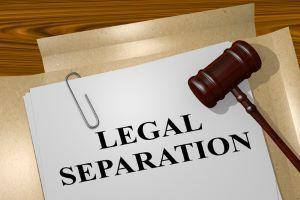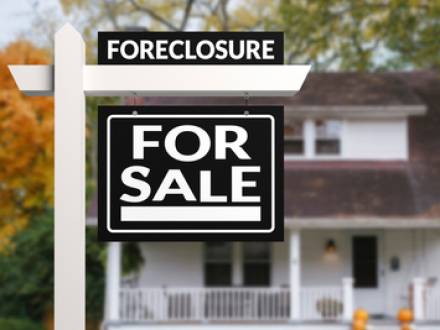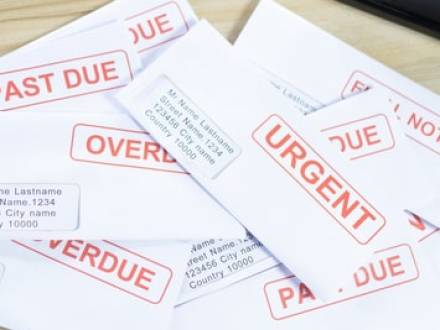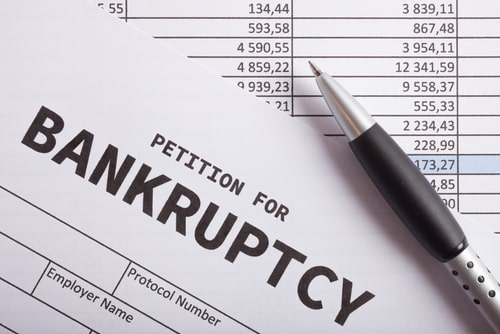Recent Blog Posts
How Can I Obtain a Legal Separation in Illinois?
 Are you thinking about leaving your marriage, but you’re not yet sure that divorce is the right answer? Maybe you have religious reasons for staying married, or maybe you need to keep health insurance. Maybe you just need space to figure things out.
Are you thinking about leaving your marriage, but you’re not yet sure that divorce is the right answer? Maybe you have religious reasons for staying married, or maybe you need to keep health insurance. Maybe you just need space to figure things out.
Whatever the reason, legal separation can give you a gentler alternative to divorce. It lets you live apart, divide finances, and protect your rights without actually ending your marriage.
Our McHenry County family law attorney can help you understand whether legal separation makes sense for you in 2026. Call The Thomas Law Office at 847-426-7990 for a consultation.
What Is Legal Separation?
Legal separation is a court order that lets married couples live apart and divide their lives while staying legally married. You will usually live in separate homes, split finances, and make arrangements for kids if you have them. But you cannot remarry unless you later get divorced.
Is It Better to File for Bankruptcy or Foreclose on Your House?
 When someone falls behind on mortgage payments, the financial pressure can feel crushing. Late fees build up, calls from creditors are relentless, and the threat of losing the home becomes real. In this situation, two main legal options come into play: foreclosure and bankruptcy. Understanding the difference can help you decide which route is right for you.
When someone falls behind on mortgage payments, the financial pressure can feel crushing. Late fees build up, calls from creditors are relentless, and the threat of losing the home becomes real. In this situation, two main legal options come into play: foreclosure and bankruptcy. Understanding the difference can help you decide which route is right for you.
Attorney Colleen Thomas is an experienced McHenry County bankruptcy and foreclosure attorney. If you are worried about losing your house, contact us today and let us help.
What Happens in a Foreclosure?
Foreclosure is the legal process that allows a lender to take ownership of a property when the homeowner defaults on mortgage payments. In Illinois, foreclosure is judicial, meaning it goes through the court system.
How Are Different Kinds of Assets Divided in Illinois Divorces?
 When a couple gets divorced, Illinois law requires an equitable distribution of marital assets; however, "equitable" does not always mean equal. The court considers many factors when deciding which spouse gets what. For families in McHenry County and Kane County, understanding how different types of assets are treated under Illinois law is a crucial step in setting realistic expectations and preparing for negotiations.
When a couple gets divorced, Illinois law requires an equitable distribution of marital assets; however, "equitable" does not always mean equal. The court considers many factors when deciding which spouse gets what. For families in McHenry County and Kane County, understanding how different types of assets are treated under Illinois law is a crucial step in setting realistic expectations and preparing for negotiations.
As of August 2025, Illinois continues to follow the rules outlined in the Illinois Marriage and Dissolution of Marriage Act (750 ILCS 5/503). These statutes explain how property is classified and divided when spouses separate. If you are thinking about divorce, talk to our McHenry County, IL divorce lawyer. We have decades of experience and can help you through even the most complex asset division negotiations.
Can You Protect Your Home Through Chapter 13 Bankruptcy?
 The threat of foreclosure can weigh heavy over you as a homeowner, especially if you have a family to look after. Despite your best efforts, you could end up overwhelmed with debt and fall behind on mortgage payments. If you are looking to defend against foreclosure, you could consider Chapter 13 bankruptcy to take control of your situation. With the help of an Illinois bankruptcy attorney, you can explore your options to protect your home.
The threat of foreclosure can weigh heavy over you as a homeowner, especially if you have a family to look after. Despite your best efforts, you could end up overwhelmed with debt and fall behind on mortgage payments. If you are looking to defend against foreclosure, you could consider Chapter 13 bankruptcy to take control of your situation. With the help of an Illinois bankruptcy attorney, you can explore your options to protect your home.
Filing for Chapter 13 bankruptcy is not a simple process by any means. You may be asked plenty of questions in court about your ability to pay back your debts, and you will have to present a repayment plan to satisfy your creditors. At The Thomas Law Office, we can provide you with strong counsel and representation to address your most critical needs.
How Debt Restructuring Can Help You
The difference between Chapter 7 and Chapter 13 bankruptcy comes down to how the debt is addressed. In Chapter 7 bankruptcy, you will have to liquidate non-exempt assets to pay off your debts in the short term. This is in contrast to Chapter 13 bankruptcy, which involves restructuring your debts into a more digestible repayment plan. This allows you to maintain continuity as you keep making mortgage payments.
How Is Parenting Time Split in Illinois?
 Figuring out how to divide physical custody is one of the biggest hurdles for parents going through a divorce. There is no one "right" way to allocate parenting time, but in any case, the arrangement must put the child’s best interests first. If you are in the midst of a custody dispute, an Illinois family law attorney can advocate for a favorable parenting time schedule on your behalf.
Figuring out how to divide physical custody is one of the biggest hurdles for parents going through a divorce. There is no one "right" way to allocate parenting time, but in any case, the arrangement must put the child’s best interests first. If you are in the midst of a custody dispute, an Illinois family law attorney can advocate for a favorable parenting time schedule on your behalf.
Intense custody battles can be draining for all parties involved, especially the children caught between parents. At The Thomas Law Office, we are ready to work toward a long-term solution that promotes your child’s well-being.
Parental Fitness
Parental fitness is one of the most significant factors in allotting child custody. In this context, "fitness" refers to a parent’s ability to take care of a child. Assuming both parents can provide for a child’s needs, they may have equal rights to parenting time. However, certain factors may lead to a parent being deemed unfit, such as:
Benefits of Filing for Chapter 13 Bankruptcy
 When your debts become too overwhelming to manage on your own, a Chapter 13 bankruptcy can give you some much-needed relief. That being said, the process of filing for bankruptcy is anything but easy. You will have to draft a full repayment plan and attend a court hearing to get final approval from a judge. An Illinois bankruptcy attorney can guide you through the steps, making sure your rights are protected.
When your debts become too overwhelming to manage on your own, a Chapter 13 bankruptcy can give you some much-needed relief. That being said, the process of filing for bankruptcy is anything but easy. You will have to draft a full repayment plan and attend a court hearing to get final approval from a judge. An Illinois bankruptcy attorney can guide you through the steps, making sure your rights are protected.
Attorney Colleen Thomas has over a decade of experience in bankruptcy law. When you work with our firm, you can take heart knowing that Attorney Thomas will handle your case personally, rather than passing it off to another lawyer or a paralegal.
There are numerous benefits to filing for Chapter 13 bankruptcy. We can assess if you are eligible for this type of bankruptcy and take the steps to file the petition on your behalf.
Protection from Creditors
If you are late on secured loan payments with collateral, your creditors could threaten to seize that collateral. This is especially concerning for mortgages, as you could be at risk of foreclosure if you fall behind on payments. A creditor can also seize your vehicle for delinquent payments on a car loan, leaving you and your household without reliable transportation.
What Can I Do if I Do Not Qualify for Chapter 7 Bankruptcy?
 In order to be allowed to file for liquidation bankruptcy under Chapter 7, you need to pass a means test. In Illinois, you will generally pass the means test if your total monthly income is less than the median income. The current median income is approximately $7,475, but that amount does fluctuate. However, even if you make more than this, it is still possible to go into debt that you cannot repay. A serious illness or injury or a change in your career can set you back enough that you are considering bankruptcy. If you do not qualify for Chapter 7 bankruptcy but still need relief from insurmountable debt, you may have other options. An experienced McHenry County, IL debt relief attorney can assess your individual financial situation and explain your options.
In order to be allowed to file for liquidation bankruptcy under Chapter 7, you need to pass a means test. In Illinois, you will generally pass the means test if your total monthly income is less than the median income. The current median income is approximately $7,475, but that amount does fluctuate. However, even if you make more than this, it is still possible to go into debt that you cannot repay. A serious illness or injury or a change in your career can set you back enough that you are considering bankruptcy. If you do not qualify for Chapter 7 bankruptcy but still need relief from insurmountable debt, you may have other options. An experienced McHenry County, IL debt relief attorney can assess your individual financial situation and explain your options.
Filing for Chapter 13 Bankruptcy
Chapter 13 bankruptcy is often considered a restructuring of your debts because you will have to keep making payments toward your debt for several years. However, a significant portion of your debt can still be cleared without being paid back through Chapter 13 bankruptcy. You will be expected to make a single monthly payment that roughly equals your disposable income for a period of three to five years. Once those three to five years are over, any remainder of the debt you still owe is cleared. So, if you have much more debt than you could realistically pay back in a few short years, you will likely come out ahead by filing for Chapter 13 bankruptcy.
How is Spousal Maintenance Determined in Illinois?
 Divorce often brings financial uncertainty, and one of the most common concerns is spousal maintenance, commonly called alimony. If you are facing divorce, you might be wondering: Will I have to pay spousal maintenance? Am I eligible to receive it? How much will be involved? An Illinois lawyer can help you with the critical questions that can significantly impact your financial future.
Divorce often brings financial uncertainty, and one of the most common concerns is spousal maintenance, commonly called alimony. If you are facing divorce, you might be wondering: Will I have to pay spousal maintenance? Am I eligible to receive it? How much will be involved? An Illinois lawyer can help you with the critical questions that can significantly impact your financial future.
Overview of Spousal Maintenance
Spousal maintenance is financial support paid by one spouse to the other after and during a divorce. Its purpose is to help the receiving spouse maintain a similar standard of living to what he or she had during the marriage. In Illinois, maintenance is not automatic. Courts consider various factors to decide if maintenance is appropriate and, if so, how much should be paid and for how long.
Factors Considered by Illinois Courts When Determining Spousal Maintenance
Illinois law provides specific guidelines for judges to follow when determining spousal maintenance. Here are the main factors courts consider:
Can I Keep My Car During Bankruptcy?
 Filing for bankruptcy can be a daunting process, and one of the most common concerns among people considering bankruptcy is whether they can keep their car. The answer to this question depends on several factors, including the type of bankruptcy you file, the value of your car, and your ability to make payments. An Illinois lawyer can help you understand the options available to you and help you understand how you can keep your car during bankruptcy.
Filing for bankruptcy can be a daunting process, and one of the most common concerns among people considering bankruptcy is whether they can keep their car. The answer to this question depends on several factors, including the type of bankruptcy you file, the value of your car, and your ability to make payments. An Illinois lawyer can help you understand the options available to you and help you understand how you can keep your car during bankruptcy.
If I File Bankruptcy, Can I Keep My Car?
The short answer is yes; it is possible to keep possession of your car when filing for bankruptcy in Illinois. However, the specific circumstances of your case will determine the best course of action. In a Chapter 7 bankruptcy, you may be able to exempt your car from liquidation if its value falls within the allowed exemption amount. In a Chapter 13 bankruptcy, you can keep your car by including it in your repayment plan and making the necessary payments.
Signs You Should Consider Filing for Bankruptcy
 Deciding to file for bankruptcy is a significant and often difficult decision. It is important to carefully consider your financial situation and explore all available options before moving forward with the bankruptcy process. If you have found yourself in this situation, contact a lawyer to ensure your rights are protected
Deciding to file for bankruptcy is a significant and often difficult decision. It is important to carefully consider your financial situation and explore all available options before moving forward with the bankruptcy process. If you have found yourself in this situation, contact a lawyer to ensure your rights are protected
Here Are Signs Indicating It May Be Time to File for Bankruptcy
-
Overwhelming debt – If you find yourself struggling to keep up with your debt payments and are constantly falling behind, it may be a sign that your financial situation is unsustainable. Filing for bankruptcy can provide relief from overwhelming debt and give you a fresh start.
-
Constant harassment from creditors – If you are receiving constant calls and letters from creditors demanding payment, filing for bankruptcy can put an end to creditor harassment and give you peace from the persistence of creditors

